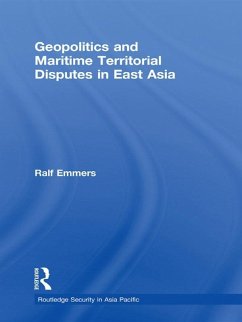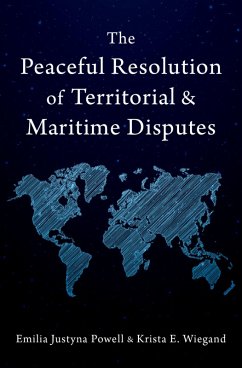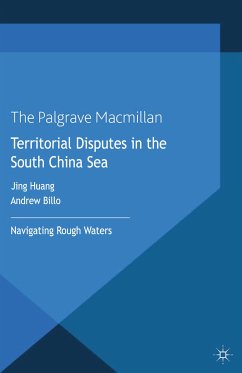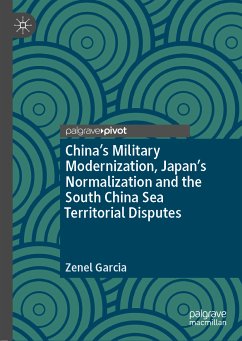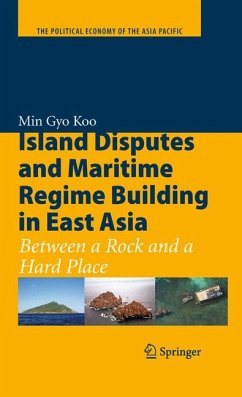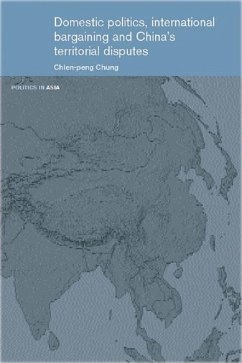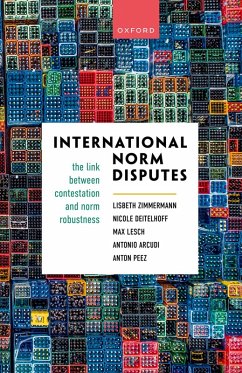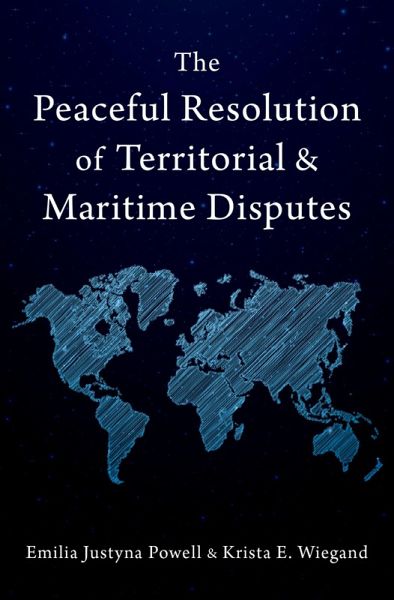
The Peaceful Resolution of Territorial and Maritime Disputes (eBook, PDF)
Versandkostenfrei!
Sofort per Download lieferbar
37,95 €
inkl. MwSt.
Weitere Ausgaben:

PAYBACK Punkte
19 °P sammeln!
This book is about the peaceful resolution (PR) of territorial and maritime disputes and states' strategic behavior vis-à-vis methods of peaceful resolution: bilateral negotiations, good offices, inquiry, conciliation, mediation, arbitration, and adjudication. The authors argue that the high stakes associated with settlement of territorial and maritime disputes, the diversity of PR methods employed, and unpredictability of outcomes push states to strategize. Strategic considerations undergird states' choice of the particular PR methods, and states' behavior during the resolution once a partic...
This book is about the peaceful resolution (PR) of territorial and maritime disputes and states' strategic behavior vis-à-vis methods of peaceful resolution: bilateral negotiations, good offices, inquiry, conciliation, mediation, arbitration, and adjudication. The authors argue that the high stakes associated with settlement of territorial and maritime disputes, the diversity of PR methods employed, and unpredictability of outcomes push states to strategize. Strategic considerations undergird states' choice of the particular PR methods, and states' behavior during the resolution once a particular method such as adjudication or negotiations, has been initiated. Uncertainty about the outcome drives states to pursue "strategic selection." The process of strategic selection occurs at two interrelated stages: the initial pursuit of a particular method and venue--choice-of-venue strategic selection, and decision-making once a PR method/venue has been identified--within-venue strategic selection. The driving force behind strategizing in these two settlement stages is the hope of reducing uncertainty and of increasing the chances of winning. Importantly, as the disputants progress through the settlement process, states reconsider and refine these strategies. For each stage of strategic selection, Powell and Wiegand identify several mechanisms that influence states' strategies, including past experiences with PR methods (winning/losing), the relationship between domestic law and international law, framing legal claims, and shaping the resolution procedures. This book embraces a multi-method approach and combines statistical analyses and in-depth qualitative interviews with states' legal counsel, judges, arbitrators, government officials, and other experts from multiple countries. The book also highlights numerous real-world instances of territorial and maritime disputes including the Philippines v. China arbitration case in the South China dispute.
Dieser Download kann aus rechtlichen Gründen nur mit Rechnungsadresse in A, B, BG, CY, CZ, D, DK, EW, E, FIN, F, GR, HR, H, IRL, I, LT, L, LR, M, NL, PL, P, R, S, SLO, SK ausgeliefert werden.





